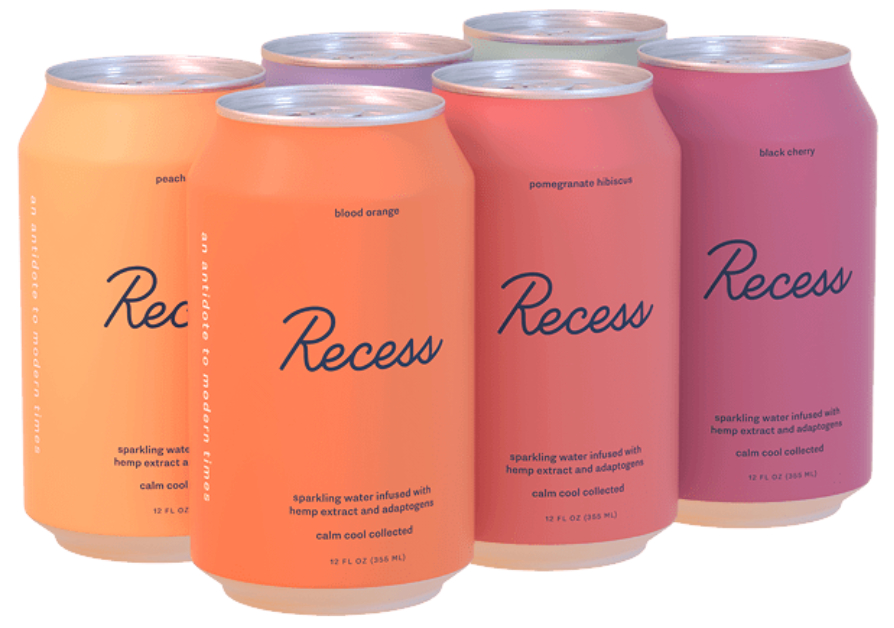NEW YORK — In today’s pandemic environment, content-starved consumers are seeking inspiration and support from the brands they buy, said Ryan Lewendon, partner at Giannuzzi Lewendon, LLP.
“We’ve watched everything on Netflix already,” Mr. Lewendon said. “We’re looking for stimulation. We’re looking to discover new products and companies, and we’re looking to be educated on things.”
He provided the example of Recess, a functional beverage brand formulated with hemp and other botanicals.
“Recess is not just a beverage; it’s a platform about ‘calm, cool, collected,’” he said. “They’re offering education on optimizing yourself in the workplace, battling anxiety, those types of things. The more holistic platform type brands are really resonating with people.”
The team at Giannuzzi Lewendon, formerly The Giannuzzi Group, has counseled some of the most disruptive brands in the consumer products industry, including Vitaminwater, RXBAR, Oatly, Vita Coco and Sir Kensington’s, tackling a range of issues from intellectual property protection and corporate governance to ingredient sourcing and manufacturing deals.
“We started our foray into consumer goods 15 years ago,” Mr. Lewendon said. “We were the first lawyers for Vitaminwater. We did everything for Vitaminwater up and down the line until they sold to Coke for $4.8 billion. That was our education in consumer goods. We did every round of finance, every distribution agreement, every manufacturing agreement, every celebrity agreement…
“After it sold in 2008, we realized by going to a couple trade shows that there is a big white space in the legal market for people helping brands and founders… People come to us pre-revenue and stay with us all the way through a sale as a company.”
 Over the past decade, he has witnessed an evolution of the marketplace driven by expanded consumer access to new brands and changing tastes.
Over the past decade, he has witnessed an evolution of the marketplace driven by expanded consumer access to new brands and changing tastes.
“Consumer discovery has skyrocketed, and because of that, the M&A and financing ecosystem in CPG has really developed,” Mr. Lewendon said. “Big companies realize they were not made to jump on all the fast-growing trends that are occurring.”
As a result, the industry has become more collaborative, he said.
“The investors and the strategics and the acquirers and the startups are all kind of in it together and working together,” he said. “To a large extent everyone needs each other. There are certain things you can do with scale that you can’t necessarily do when you’re small. But the public’s tastes are dynamic enough and fast-moving enough that you need the entrepreneur to cater to those niche trends that become mainstream trends pretty quickly sometimes.”
Trends he has observed accelerating in the wake of the pandemic include a heightened interest in functional food and beverage products that tap into consumer demand for immunity, relaxation and cognition. This has extended into personal care products, too.
“For years and years, we’ve been so concerned with what we’re digesting but not necessarily what we’re absorbing,” Mr. Lewendon said. “We’re becoming more cognizant of not only what we put in our bodies but what we put on our bodies.”
“Big companies realize they were not made to jump on all the fast-growing trends that are occurring.” — Ryan Lewendon, Giannuzzi Lewendon, LLP
Cannabis represents another promising area; however, the regulatory landscape remains murky as it is not approved on a federal level for use in food and beverage.
“We do believe pretty strongly that it’s all headed toward legalization,” Mr. Lewendon said. “For companies navigating these matters, it’s really important to be well educated on them, to know what you can and can’t do, and when you’re operating in a gray area, what the risks are with that.”
A trend gaining traction in the financing market concerns an increased focus on the bottom line. In prior years, explosive revenue growth indicated a hot target, but now food brands plotting an exit strategy must demonstrate a pathway to profitability, Mr. Lewendon said.
“Before 2020, a company that was $100 million in revenues and doubling every year but losing $10 million could be an acquisition target,” Mr. Lewendon said. “Now that’s not an acquisition target. Nobody wants to buy that. Whereas a company that’s doing $100 million in revenues, growing 20% year over year but is making $10 million in profit, everyone wants to buy that.”
He added, “I think a lot of the bigger players are looking for that narrative, whereas in the past people were willing to come in on a concept, an idea that was a very big idea, and figuring out ways to monetize it later. Founders need to have that story from the get-go these days to be attractive.”
Investors are more cautious and want to support businesses that are growing in a sustainable and thoughtful way, Mr. Lewendon said.
“They want to invest in people they can trust with money and trust to stretch their dollar and make the right decisions and aren’t just going to burn a lot of cash seeking top-line sales and the highest valuation they can the next round,” he said. “You still need growth, but you want to focus on the right growth and focus on building a brand and product offering that has a sustainable margin as well.”





